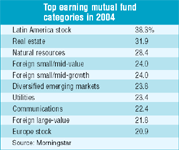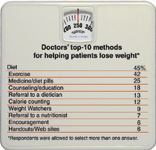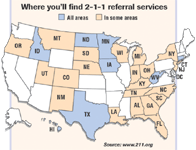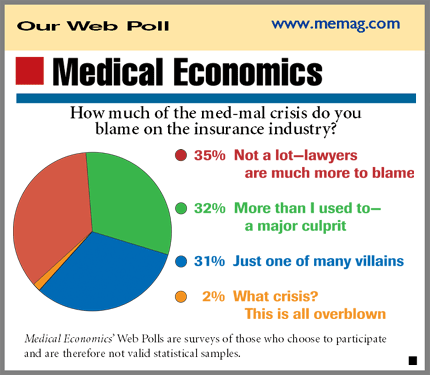Article
UPDATE
On finance and practice
High-earners face a greater audit risk

Don't let disaster relief victimize you Check out charities before you donate to help those devastated by the tsunami or other natural disasters, warns the Better Business Bureau. Make sure the organization is registered with the appropriate state agencies, discloses exactly what it will do to help the victims, and is willing to give you written information about its finances and programs. (Reports on the finances, fund-raising, and governance of charity organizations are available at http://www.give.org) Stay away from charities that lack experience in providing relief efforts.
Get through the airport quicker
Most airline passengers check in at the counter even though it takes them more than twice as long as using a self-service kiosk, says a survey by J.D. Power and Associates. Nearly 60 percent of passengers stand in line at the ticket counter, with an average wait of 19 minutes. Just 18 percent use a self-service kiosk, with an average wait of eight minutes, while 10 percent check in at curbside, which takes about 13 minutes. Only 5 percent of passengers get their boarding pass online.
Moreover, passengers move through security checkpoints more quickly at small airports, where the average waiting time is 13 minutes, compared to 16 minutes at large airports. Three major US airports-Denver, Los Angeles, and Washington, DC (Dulles)-were among those with the longest security wait times.
Mutual funds enjoy double-digit gains

Want the best deal on a new car? Ask More than 60 percent of prospective new-car buyers aren't being offered available low-interest financing rates, says a survey by Consumer Reports. About 40 percent won't hear about available cash rebates from the dealers, either. But most are offered pricey, often unnecessary extras such as vehicle identification number etchings and alarm systems. To get the best deal available, Consumer Reports says, do your homework and look into incentive programs before getting to the showroom.
Trade in unwanted gift cards
If you got a gift card for The Home Depot when you're really yearning for jewelry, you might be able to swap it online with some other disgruntled soul. For $3.99, you can list your unwanted gift card at SwapAGift.com ( http://www.swapagift.com) and trade it in for cash or a card for your favorite merchant. Cardavenue.com ( http://www.cardavenue.com) also lets you trade or sell gift cards, for 6.25 percent of the card's value plus a 50-cent "closing" fee.
Wall Street cops had a busy year
The NASD, which regulates the securities industry, collected $102 million in disciplinary fines in 2004, up significantly from $33 million in 2003. Moreover, the agency barred 450 individuals and 23 firms from the securities industry last year. About 5,100 customer complaints were resolved in 2004, down from 5,690.
Your warnings may not be falling on deaf ears

For more information on how to hone your obesity counseling skills, see the upcoming article on helping obese patients in our March 4 issue.
A referral guide for patients in crisis

An insurer raises the bar on patient safety
Minnesota-based HealthPartners will no longer reimburse hospitals for medical care resulting from what it considers to be preventable errors. Among the "never events" that have been identified: an operation performed on the wrong body part or wrong patient, a foreign object left in a patient, and the use of a contaminated drug or device. The new policy applies to hospitals only-not to individual physicians-and covers 27 events that reflect standards established by a national coalition on healthcare quality.
A medical society is KO'd in court
The Connecticut Supreme Court delivered two knockout punches to the state medical society when it upheld a lower court's dismissal of lawsuits filed against Oxford Health Plans and ConnectiCare. The medical society charged that the plans had violated the state's Unfair Trade Practices law by improperly delaying and reducing physician reimbursement. The high court agreed with the lower court's finding that the society lacked standing because "the harm allegedly suffered by it . . . was too remote to be actionable."
Choosing the drugs Medicare will pay for
The United States Pharmacopeia has developed a list of 146 drug categories that health plans offering the Medicare prescription benefit (Part D) may use to develop their formularies. The USP recommends that each plan formulary include at least one drug from each of the categories, classes, and drug types outlined. By law, health plans aren't required to use the model guidelines, and the USP says they aren't intended to serve as therapeutic guidelines. Practitioners, it adds, should remain responsible for prescribing medications as necessary for particular indications.






